Daily Vocabulary Words: List of Daily Used Words in Leading International Newspapers
Hi there. Welcome to this special section @ Wordpandit.
Our endeavour here is very simple: to highlight important daily vocabulary words, which you would come across in leading newspapers in the country. We have included the following newspapers in our selection:
• The New York Times
• The Washington Post
• Scientific American
• BBC
• The Guardian
• Psychology Today
• Wall Street Journal
• The Economist
We are putting in extensive work for developing your vocabulary. All you have got to do is be regular with this section and check out this post on a daily basis. This is your repository of words that are commonly used and essentially, we are posting a list of daily used words. Hence, this has significant practical application as it teaches you words that are used commonly in leading publications mentioned above.
Visit the website daily to learn words from leading international newspapers.
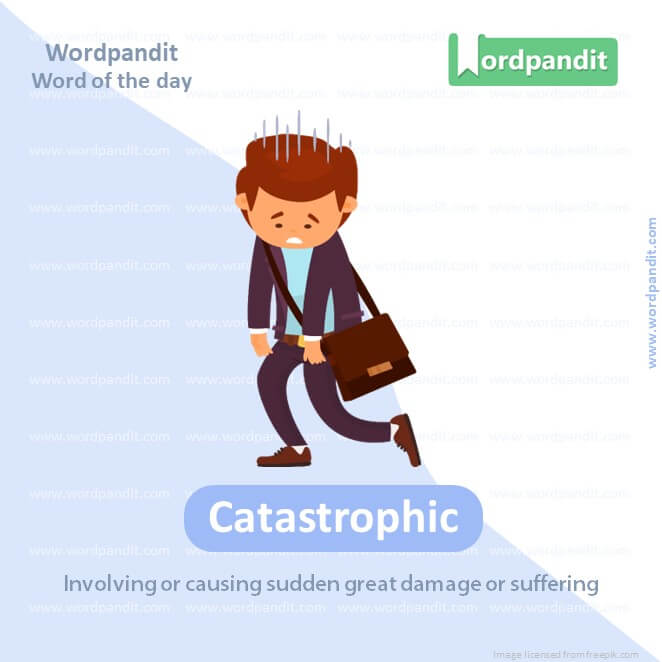
Word-1: Catastrophic
Meaning: Involving or causing sudden great damage or suffering.
Synonyms: disastrous, calamitous, cataclysmic, devastating, ruinous, tragic, detrimental, dire, apocalyptic, overwhelming.
Usage Examples:
1. The hurricane caused catastrophic damage to the coastal towns.
2. Failure to address climate change could have catastrophic consequences.
3. Their ill-advised investment was a catastrophic financial decision.
4. The engineers worked to prevent a catastrophic system failure.
Word-2: Constraints
Meaning: Limitations or restrictions.
Synonyms: restrictions, limitations, confines, restraints, impediments, curbs, checks, boundaries, strictures, conditions.
Usage Examples:
1. Budget constraints affected the project’s scope.
2. The tight deadline imposed additional constraints on the team.
3. She often felt the constraints of societal expectations.
4. Time constraints prevented him from completing his research.
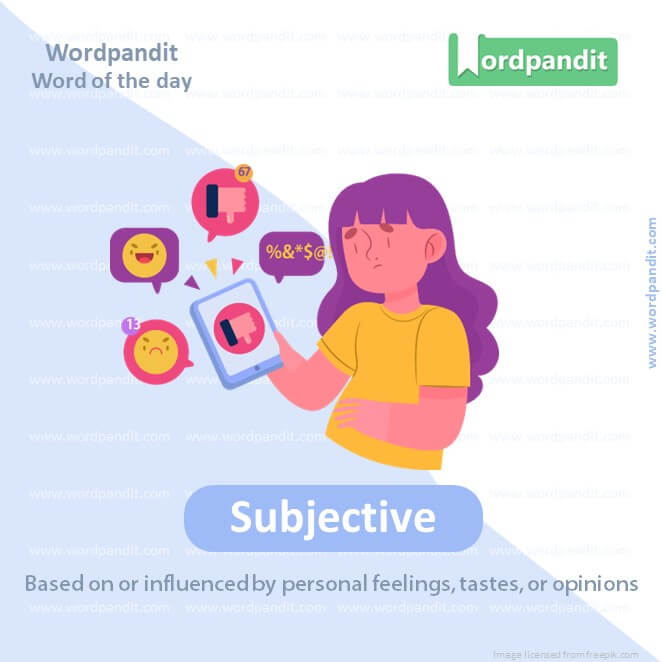
Word-3: Subjective
Meaning: Based on or influenced by personal feelings, tastes, or opinions.
Synonyms: personal, individual, emotional, biased, prejudiced, internal, intuitive, interpretive, idiosyncratic, personalistic.
Usage Examples:
1. Beauty is a subjective matter and varies from person to person.
2. His critique seemed more subjective than analytical.
3. This documentary tries to present an objective view, but it inevitably has some subjective elements.
4. How you interpret the art piece is entirely subjective.
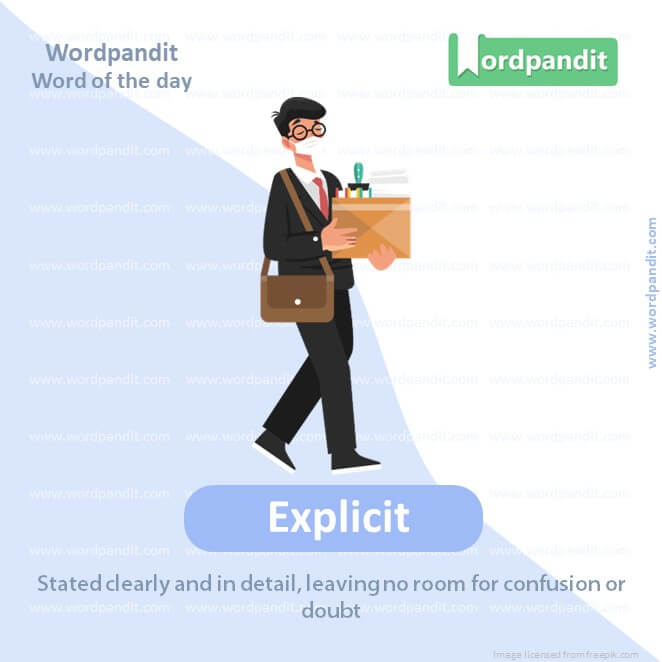
Word-4: Explicit
Meaning: Stated clearly and in detail, leaving no room for confusion or doubt.
Synonyms: clear-cut, direct, straightforward, unambiguous, precise, definitive, categorical, overt, plain, clear.
Usage Examples:
1. The teacher gave explicit instructions for the assignment.
2. The document contains explicit content that might not be suitable for all audiences.
3. The rules were made explicit to avoid any misunderstandings.
4. She was explicit in expressing her disapproval.
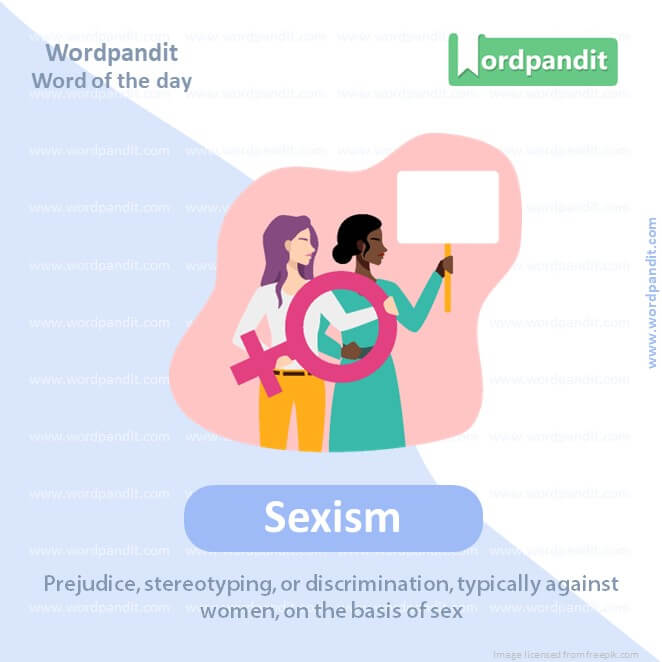
Word-5: Sexism
Meaning: Prejudice, stereotyping, or discrimination, typically against women, on the basis of sex.
Synonyms: gender bias, gender discrimination, chauvinism, misogyny, male chauvinism, patriarchy, gender prejudice, androcentrism, partiality.
Usage Examples:
1. The company was criticized for its blatant sexism in its advertising campaigns.
2. Sexism in the workplace can deter women from pursuing certain careers.
3. We must challenge and fight against everyday sexism.
4. She wrote an article highlighting the sexism present in modern movies.
Word-6: Idyll
Meaning: An extremely happy, peaceful, or picturesque episode or scene, typically idealized.
Synonyms: utopia, paradise, heaven, Eden, Shangri-La, haven, Arcadia, nirvana, Elysium.
Usage Examples:
1. The countryside retreat was an idyll of tranquillity and natural beauty.
2. They reminisced about the summer idyll of their youth.
3. The poem paints an idyll of rural life in the past.
4. For a moment, they escaped the city and found an idyll in the secluded beach.
Word-7: Middling
Meaning: Moderate or average in size, amount, or rank.
Synonyms: average, medium, moderate, fair, intermediate, mediocre, ordinary, run-of-the-mill, tolerable, passable.
Usage Examples:
1. The movie was only of middling quality.
2. She had a middling score on the test but hoped to improve.
3. The hotel was comfortable but fairly middling in terms of luxury.
4. His performance was better than last time, but still middling at best.
Word-8: Mesopredators
Meaning: Relatively medium-sized predators in an ecosystem, typically preyed upon by apex predators.
Synonyms: secondary predators, subpredators, intermediate predators, non-apex predators, middle predators, mid-tier predators, sub-top predators, lesser predators.
Usage Examples:
1. When apex predators are removed from an ecosystem, mesopredators often experience a population boom.
2. Raccoons and foxes are examples of mesopredators in many forest ecosystems.
3. The decline in large shark populations has led to an increase in mesopredators such as rays.
4. Conservationists are studying the impact of mesopredators on local bird populations.
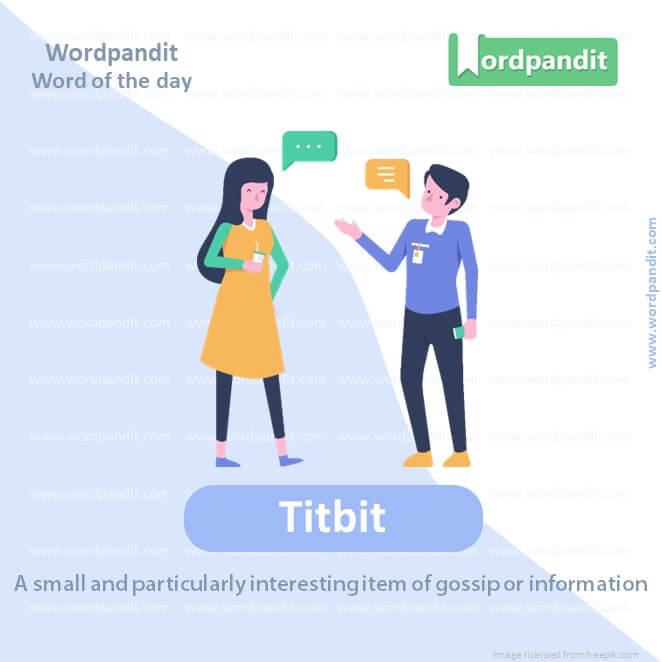
Word-9: Titbit
Meaning: A small and particularly interesting item of gossip or information.
Synonyms: morsel, snippet, tidbit (U.S. usage), nugget, piece, shred, fragment, byte, chunk, scrap.
Usage Examples:
1. She shared a juicy titbit about the celebrity’s secret visit to the town.
2. Over dinner, he mentioned a titbit of information that piqued her curiosity.
3. Every week, the magazine includes titbits about the royal family.
4. The guide gave us a few historical titbits during the tour.











